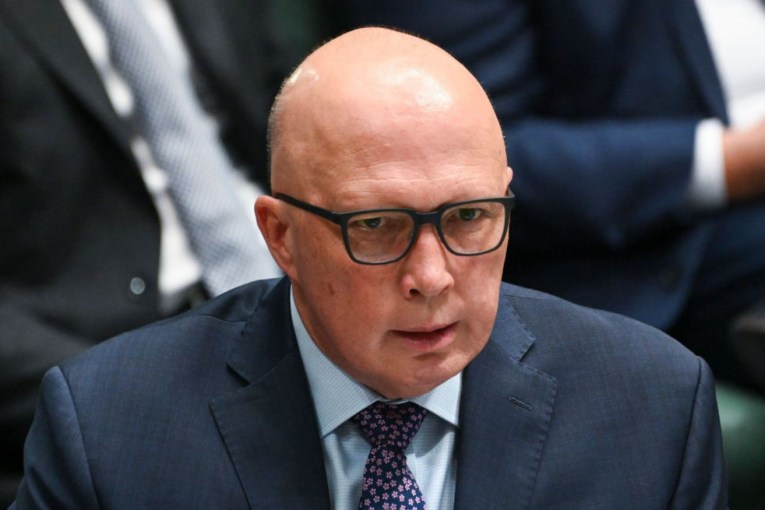Kevin Rudd slams government’s ‘monumental backflip’ on NBN upgrade


Despite the volume of signatures, Kevin Rudd expects to be ignored. Photo: TND
Former prime minister Kevin Rudd has accused the Coalition of performing a “monumental backflip” after the government announced a $4.5 billion upgrade to the NBN.
Millions of Australian homes and businesses will gain access to ultra-fast internet under the upgrade, which will involve a significant change in policy from fibre to the node to a full fibre to the premises rollout.
The program is expected to deliver speeds of up to one gigabit per second to at least eight million premises by 2023.
The Coalition has repeatedly rejected the Rudd Labor government’s initial plan for a full-fibre rollout, and has repeatedly stood by its decision to provide only fibre to the node connections for most homes.
“This is a monumental policy backflip by the Morrison government, which has spent seven long years attacking my government’s original plan only now, seven years later, to begin delivering to Australians what they should have had all along,” Mr Rudd told the ABC.
“Mr Morrison deserves no credit whatsoever for this. It is seven years of lost opportunity for Australia,” he said.
Communications Minister Paul Fletcher said with 99 per cent of premises able to connect to the NBN, the time was right to upgrade the network.
Mr Fletcher said the coronavirus pandemic had also changed the way people used the internet and highlighted the need for speed.
Labor communications spokeswoman Michelle Rowland described the decision as “the most extraordinary wasteful public policy backflip of a generation”.
Labor originally planned to connect most Australian homes to the NBN through fibre to the premises.
The Coalition scrapped this approach after coming to power in 2013 in favour of mixed technologies.
Fibre was instead rolled out to “nodes” near houses or apartment blocks, which people would connect to via copper wires, often leaving them with much slower connections.
“This has to be the most extraordinary wasteful public policy backflip in a generation. This government has built a network that costs more and does less,” Ms Rowland said.
“This government has been opposed to having world-class fibre-based broadband and all of a sudden this is visionary, it is going to be a driver for jobs.”
Mr Fletcher said the full fibre connection would be based on individual consumer demand and argued Labor’s plan would have built fibre everywhere before people were willing to pay for it.
“We’ll roll the fibre down the street, but then the fibre lead into the home will only be built when there’s a customer order,” he said.
The NBN upgrades will generate returns on investment and add significant value to the company and Mr Fletcher appears to be laying the groundwork for a possible privatisation of NBN Co.
“As responsible stewards of taxpayers’ capital, we are always alive to the question of what will a particular investment plan by a government business enterprise do to the value of that enterprise,” he said.
“NBN was required to demonstrate to the government that there was a positive return on investment.”
The independent Parliamentary Budget Office reported the fair value of the NBN at $8.7 billion, compared to the $29.5 billion in equity received to build the network.
From an economic perspective, the NBN is estimated to increase Australia’s gross domestic product by $6.4 billion a year by 2024, including $1.5 billion in regional areas.
-with AAP









